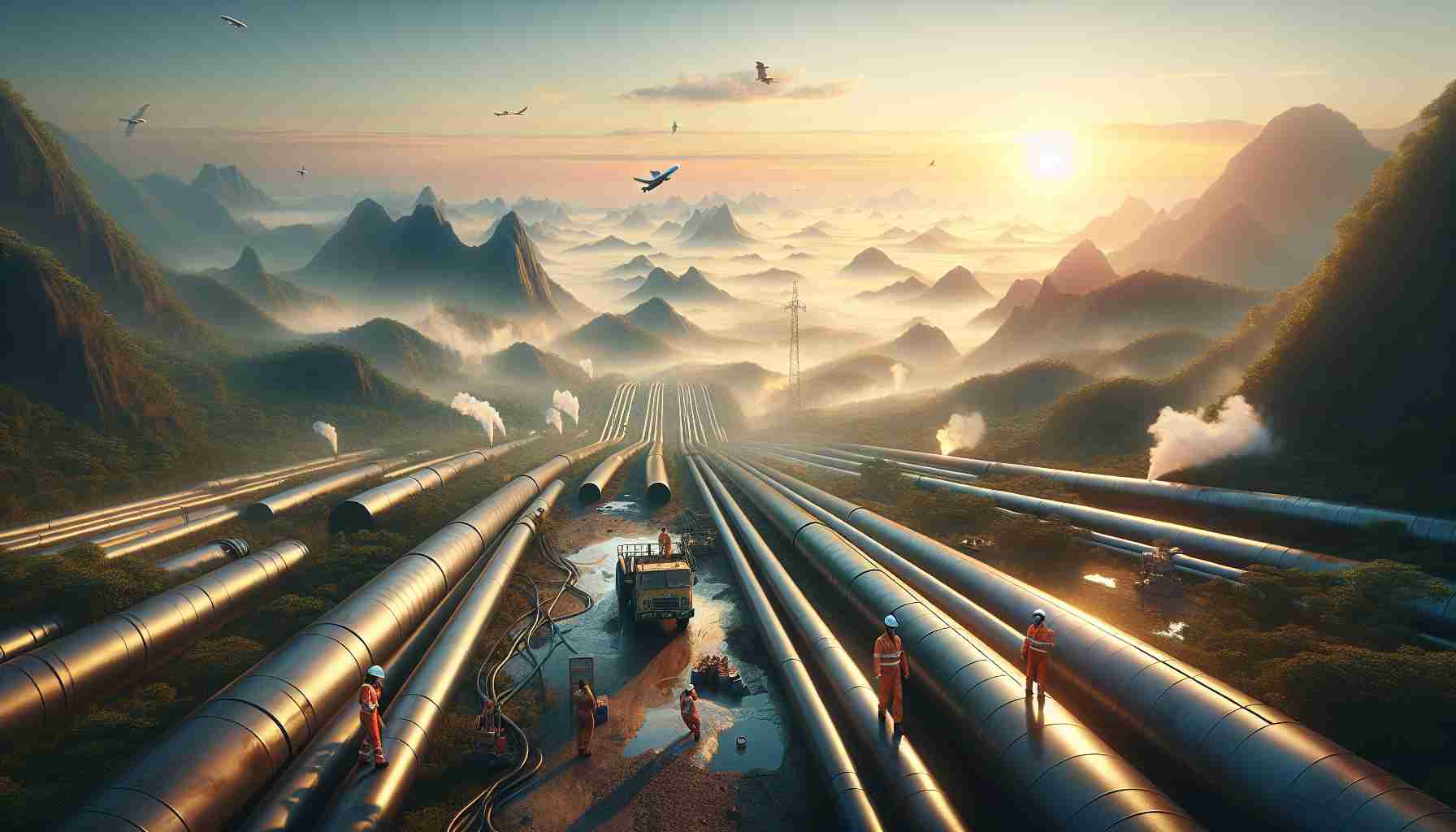A foul stench lingers over the once pristine shores of Lake Maracaibo in Venezuela, serving as a stark reminder of the country’s struggling oil industry. Many regions in Venezuela, once considered the wealthiest nation in Latin America, are grappling with economic hardships, setting the stage for the upcoming elections. Amidst these challenges, President Nicolás Maduro seeks a third term, with economic woes taking center stage in political discourse.
Venezuela’s economic downturn, exacerbated by a significant drop in global oil prices since 2014, has occurred under Maduro’s leadership, starting in 2013. While the president bears responsibility, some Venezuelans attribute the country’s dire situation to US sanctions. Over a century ago, the Maracaibo Basin’s abundant oil resources played a pivotal role in propelling Venezuela to become a top global oil producer, ushering in a period of unprecedented prosperity.
With the largest proven oil reserves globally, Venezuela witnessed a drastic decline in production from 3.5 million barrels per day in 2008 to less than half a million barrels in just 12 years. This decline, stemming from industry nationalization and a prolonged strike at the state-owned PDVSA during Hugo Chávez’s presidency, resulted in mass layoffs and an influx of inexperienced loyalists to key positions within the company.
Environmental Challenges Facing Venezuela’s Oil Industry: Expanding on the Crisis
Amidst Venezuela’s economic turmoil and the struggles of its oil industry, there are several critical questions that emerge, shedding light on the complexities of the situation. Let us delve deeper into the key challenges and controversies associated with this topic:
1. How has the environmental impact of Venezuela’s oil industry contributed to the current crisis?
The environmental toll of oil extraction in Venezuela has been severe, with reports of polluted water sources, deforestation, and air contamination in oil-rich regions. These factors have led to the degradation of ecosystems and health risks for local communities, exacerbating the country’s environmental challenges.
2. What role do international sanctions play in influencing Venezuela’s oil production and environmental policies?
Beyond economic repercussions, sanctions imposed on Venezuela have directly impacted the oil industry’s operations, limiting access to technology, investments, and expertise needed to address environmental concerns. The interplay between sanctions and environmental sustainability remains a contentious issue.
3. Are there initiatives or reforms in place to address the environmental impact of Venezuela’s oil industry?
While the government has acknowledged the need for environmental protection, implementation of sustainable practices has been hindered by financial constraints and political instability. Efforts to balance economic interests with environmental conservation have faced significant obstacles.
The environmental challenges facing Venezuela’s oil industry come with a set of advantages and disadvantages that shape the narrative:
Advantages:
– Increased awareness of environmental issues has sparked discussions on the importance of sustainable practices within the oil sector.
– Pressure from international stakeholders has pushed for greater transparency and accountability in addressing environmental concerns.
Disadvantages:
– Limited funding and resources have constrained efforts to mitigate the industry’s environmental impact effectively.
– Political tensions and economic priorities often overshadow environmental considerations, perpetuating a cycle of environmental degradation.
As Venezuela grapples with the multifaceted challenges confronting its oil industry, the need for comprehensive strategies that balance economic interests with environmental sustainability remains paramount. By addressing the root causes of environmental degradation and fostering collaborative solutions, Venezuela can strive towards a more resilient and environmentally conscious oil sector.
For further insights on the global implications of environmental challenges in the oil industry, visit World Bank.

















